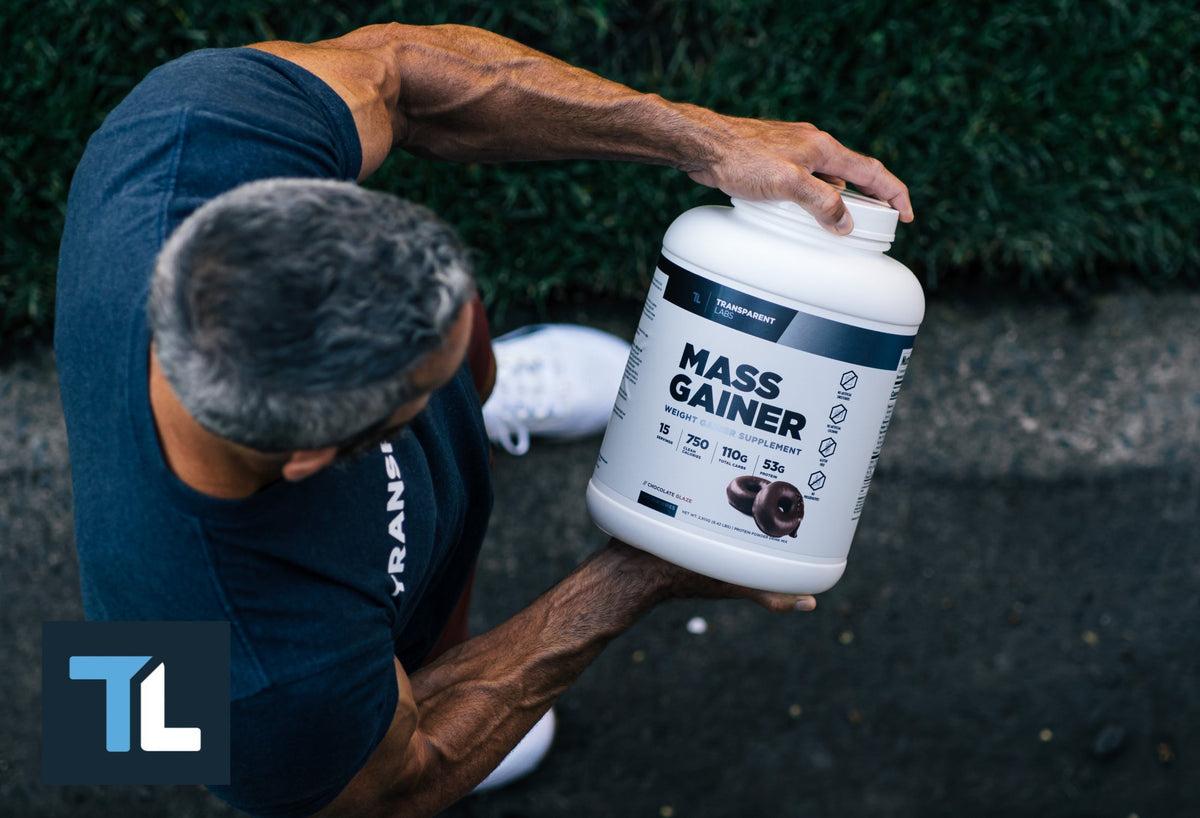Mass Gainer vs. Whey Protein: Which is Right For You? (2024)

Nutrition and dietary supplements play a critical role in how our bodies perform during and recover after exercise. Many experts agree that protein supplements, especially whey protein powder, can significantly enhance muscle growth and recovery when paired with resistance training and adequate energy intake (1).
As you progress in building muscle and improving body composition, you may start wondering: what’s the difference between mass gainers and whey protein, and which one is best for your goals?
The primary difference between whey protein and mass gainers lies in their purpose and composition. Mass gainers combine protein, fats, and carbohydrates to support weight gain and muscle growth. In contrast, whey protein is a concentrated protein source aimed at building lean muscle without adding extra calories from carbs or fats.
In this article, we’ll break down the essentials of mass gainers and whey protein powders to help you choose the right supplement for reaching your fitness goals.
What Is Mass Gainer?
A mass gainer, sometimes referred to as a "weight gainer," is similar to a meal replacement powder but specifically formulated to promote muscle gain. Typically, mass gainers are rich in carbohydrates, protein, and fat, helping create an energy surplus and supporting muscle protein synthesis. Some may also include other muscle-building ingredients like creatine monohydrate and HMB to aid recovery.
Mass gainers are ideal for individuals who are naturally thin or have a faster metabolism and find it challenging to gain weight through their diet alone.
Classic "hardgainers," for example, often struggle to build lean body mass despite consistent training and increased food intake. In these cases, a mass gainer like Transparent Labs MASS provides a calorie-dense source of protein, carbs, and fats.
What Is Whey Protein?
Whey protein is a popular dietary supplement among athletes, bodybuilders, and fitness enthusiasts. It supports muscle growth, aids post-exercise recovery, and contributes to overall wellness, including immune function and cardiovascular health (2, 3, 4, 5).
Derived from cow’s milk, whey protein is the liquid byproduct of the cheesemaking process. This protein contains all nine essential amino acids required for optimal muscle growth and repair. Whey protein powder is created by isolating these protein fractions from the liquid whey and drying them into a fine powder.
Types of Whey Protein Powder
There are three main types of whey protein powders:
-
Whey Protein Isolate
The purest form, containing over 90% protein, with minimal fat, cholesterol, and lactose.
-
Whey Protein Concentrate
Contains 70-80% protein, with some fat, lactose, and carbs remaining.
-
Whey Protein Hydrolysate
Hydrolyzed for faster absorption, making it easier on digestion.
Top 3 Differences Between Mass Gainer and Whey Protein
While mass gainers and whey protein may appear similar, they serve distinct purposes due to their unique compositions. Here are three key differences:
-
Calorie Content
Mass gainers are calorie-dense, providing 500-1,200 calories per serving to support healthy weight gain. Whey protein, on the other hand, is lower in calories, making it ideal for muscle growth and repair without significantly increasing daily calorie intake (6).
-
Protein Content
While both mass gainers and whey protein are high in protein, mass gainers provide less protein per gram. For example, Transparent Labs Grass-Fed Whey Protein Isolate offers nearly 90% protein by weight, whereas mass gainers deliver a mix of protein, carbs, and fats.
Thus, a serving of mass gainer may be around 120 grams, with only 25 grams being protein. Whey protein provides pure protein with minimal carbs and fats, supporting muscle synthesis and faster recovery (7, 8).
-
Intended Use
Mass gainers are primarily for weight gain, especially useful for hardgainers who need extra calories for muscle growth. Whey protein, on the other hand, supports muscle growth and recovery without adding many calories, making it suitable for those aiming to lose body fat while maintaining muscle (10).
Which is Better: Whey Protein vs. Mass Gainer?

Both mass gainers and whey protein serve specific fitness goals. Neither is inherently better, as each serves a unique purpose during different training phases.
Mass gainer powder is high in calories, making it ideal for those looking to bulk up, while whey protein powder is a lean, complete protein source that stimulates muscle synthesis without excessive calorie intake. Choose based on your goals and your current training phase.









